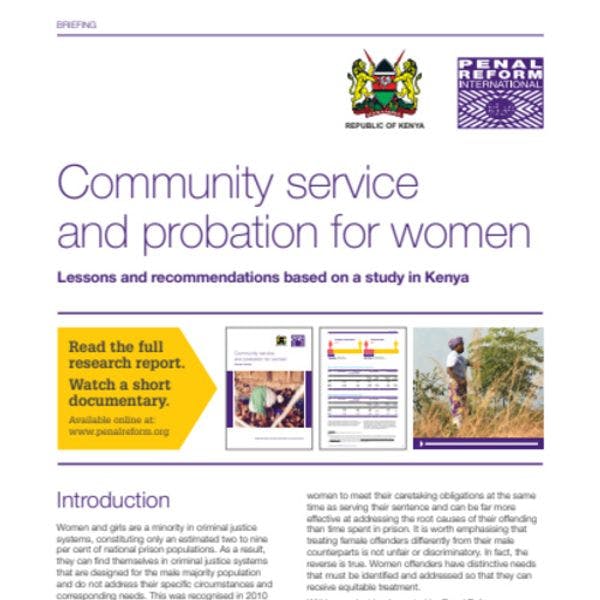Service communautaire et probation pour les femmes : Leçons et recommandations basées sur une étude menée au Kenya
Penal Reform International enquête sur le rôle des alternatives non privatives de liberté à la détention provisoire et à l’emprisonnement, spécifiquement liées au genre, pour les femmes au Kenya.
Pour en savoir plus, en anglais, veuillez lire les informations ci-dessous.
Abonnez-vous à l'Alerte mensuelle de l'IDPC pour recevoir des informations relatives à la politique des drogues.
Women and girls are a minority in criminal justice systems, constituting only an estimated two to nine per cent of national prison populations. As a result, they can find themselves in criminal justice systems that are designed for the male majority population and do not address their specific circumstances and corresponding needs. This was recognised in 2010 when the international community adopted the United Nations Rules for the Treatment of Women Prisoners and Non-custodial Measures for Women Offenders (Bangkok Rules) which outline the measures needed to ensure the gender-sensitive1 treatment of women both in prison and under non-custodial measures or sanctions.
The Bangkok Rules explicitly encourage the development and use of gender-specific non-custodial alternatives to pre-trial detention and to imprisonment. This is in recognition of the fact that many female defendants and offenders do not pose a risk to society and imprisonment frequently has a disproportionately negative impact on their rehabilitation and on their children’s lives. On the other hand, non-custodial measures and sanctions which take account of women’s distinctive needs enable women to meet their caretaking obligations at the same time as serving their sentence and can be far more effective at addressing the root causes of their offending than time spent in prison. It is worth emphasising that treating female offenders differently from their male counterparts is not unfair or discriminatory. In fact, the reverse is true. Women offenders have distinctive needs that must be identified and addressed so that they can receive equitable treatment.
Keep up-to-date with drug policy developments by subscribing to the IDPC Monthly Alert.
